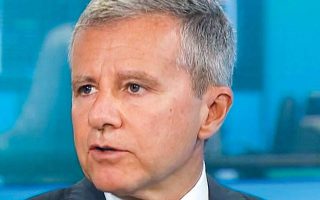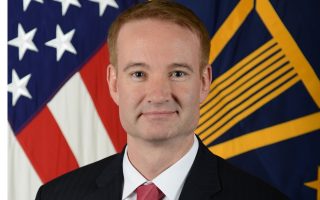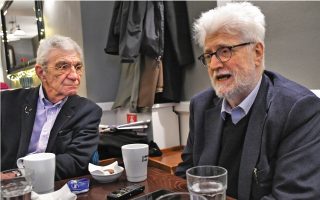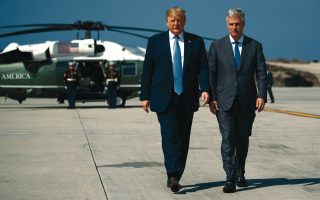Jeffrey Sachs: ‘The key right now is to fight the epidemic’
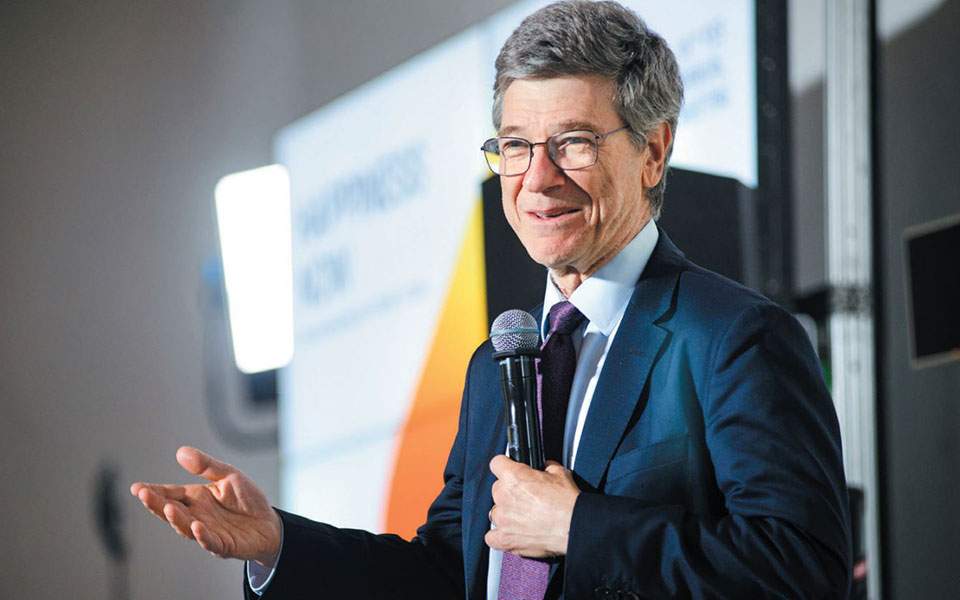
Jeffrey Sachs is an eminent American economist and professor of sustainable development at Columbia University’s School of International and Public Affairs. He had for many years been director of Columbia’s Earth Institute, while he’s served as special adviser for sustainable development to the last three secretary-generals of the United Nations. In his role as public policy analyst and leading intellectual, he’s been actively participating in the public dialogue globally on matters of economic and sustainable policy. In this interview with Kathimerini, he insists that, for the time being, all our initiatives should be focused on battling the pandemic.
“The key right now is to fight the epidemic. Governments should spend freely to hire health workers and social support workers, procure emergency equipment, and build additional health and isolation facilities. The European Central Bank should fund these incremental outlays by buying government bonds. The ECB should also buy government bonds that are directed at financing unemployment compensation and other critical economic needs.”
Sachs is crystal-clear that interventions aimed at supporting debt markets in order to avoid bankruptcies, printing money and governments acting as buyers of last resort will have limited results if the pandemic continues to rage.
“The most important step by far is to contain the epidemic. If the epidemic gets out of control, there will be no confidence and no possible way to stabilize the economy. Another key step is to isolate and protect those aged 60+, who are by far the most vulnerable in this epidemic. All older people should be secured and supported against contacts with potentially infected individuals. This is hard, costly, and requires both private and public actions.” Sachs believes that an emergency G20 convention of the kind that took place in 2008 should be called, “but the meeting should happen virtually, not face-to-face. There is no time to lose organizing an in-person meeting.”
He thinks that the crisis will last many months. “There could be a seasonal effect (lower in summer) and a fall resurgence. There are many unknowns. It will not be over in 60 days. China is probably the most successful model, but it will take weeks of intensive organization to have the kind of decisive epidemic control that China achieved.”
Sachs also believes that general – but targeted – lockdown is almost inevitable, despite the economic side effects.
“There are many kinds of work that will continue that have one of three critical characteristics: (1) They are relatively safe because of lack of intensive interpersonal contact (thank God that farming is like that); (2) they can be performed online, as we are doing; (3) they are critical, dangerous frontline services, such as our health workforce, our first responders, our infrastructure managers etc. We must protect them at all cost, with training, protective gear, supportive facilities and so forth.
“In short, almost everybody should stay home except urgently needed occupations (healthcare, first responders, food stores, pharmacies, public services, social services etc), but at least parts of the economy can and must continue to function, partly from home, partly on site whenever safe. There will be no return to normalcy for many months. We should be focusing on the present crisis: Stop the epidemic, protect the old and those with prior health conditions, give urgent social support, and spend money as needed to do this, financed by the ECB, government bonds and, if necessary, an EU bond.”
